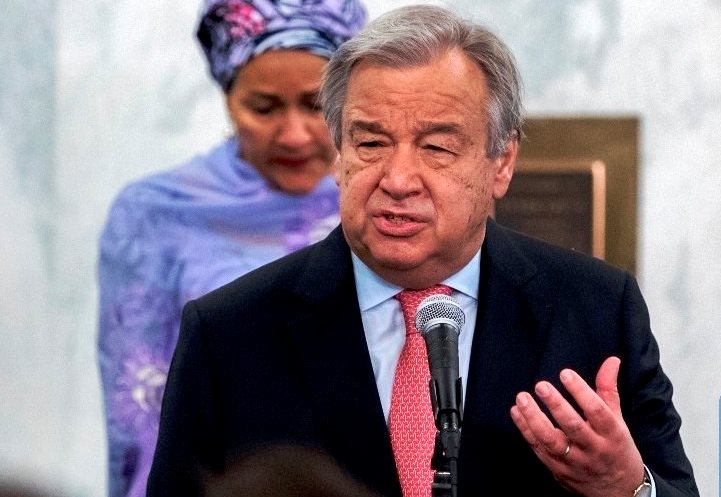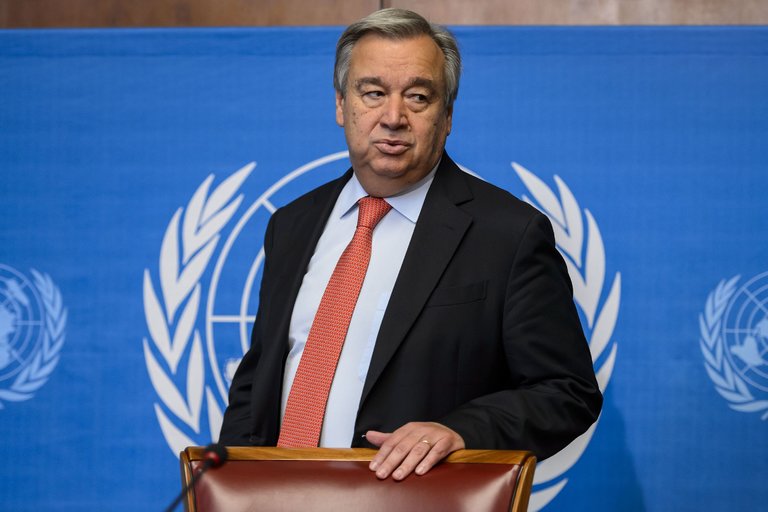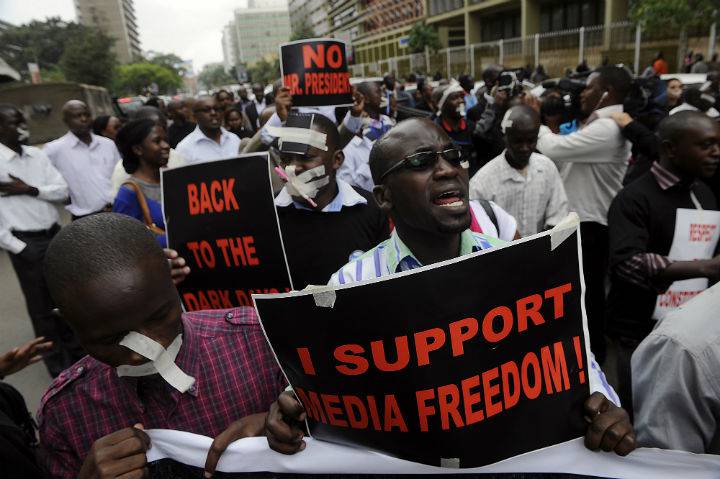The United Nations Office for Coordination of Humanitarian Affairs (UN-OCHA) says over 8.5 million persons need life-saving support due to humanitarian crisis caused by the Boko Haram insurgency in the North-East.
The UN said in its October Humanitarian Situation Report that it targeted 6.9 million displaced persons for life-saving assistance in 2017.
The fact-sheet shows that 5.2 million people are facing food insecurity and 5.1 million persons targeted for food security interventions, while humanitarian organisations in collaboration with the Federal Government provided support to three million persons under the emergency food intervention programme in 2017.
It showed that about 3.4 million persons, particularly children, expectant and nursing mothers need nutrition support, while 2.7 million were targeted for assistance within the period under review.
OCHA explained that 2.1 million persons had so far benefited from various nutrition interventions designed to control malnutrition in the war-ravaged region.
Equally, more than 5.6 million of the estimated 6.9 million persons received health care service support through effective interventions provided by humanitarian organisations, and that 4 million persons benefited from out-patient services and 1.6 million persons under mobile medical activities.
The UN agency revealed that 2.9 million children need education support, while 986, 100 of the 1.6 million targeted children, received education intervention between January and October, 2017.
“Some 787, 000 children received formal and non-formal education support, and 138, 400 children provided with learning materials.
“Psycho-social support and basic life skills training were conducted for 11, 500 teachers,” the agency said, noting that humanitarian organisation received only 18 per cent of the total funding required.
The document further showed that 3.9 million people need water, sanitation and hygiene services, and that the agency provided support to two million of the 2.4 million persons targeted for interventions.
Other highlights of the humanitarian activities in 2017 include the provision of safe drinking water to two million displaced persons and distribution of hygiene kits to 1.1 million people, while 773, 000 persons were provided with improved sanitation facilities.
On protection, the agency said that over 6.9 million people needed protection intervention, explaining that 2.4 persons were reached with intervention in the affected states.
However, the UN decried the spate of violence against civilians and Internally Displaced Persons (IDPs), stressing that urgent measures were necessary to enhance protection and security of persons affected by the conflict.
UN Deputy Secretary-General, Mrs Amina Mohammed, had paid a two-day assessment visit to Borno in January, to enable the organisation scale up stabilisation process in the region.
Mohammed visited Bama, one of the communities liberated by the military from the insurgents, the Military Command and Control Centre and the Military Cemetery, Maimalari Cantonment, Maiduguri.
She said that the visit was to assess gaps in humanitarian needs, identify areas of interventions and reconstruction efforts recorded by the government so that she could report back to the UN secretariat.
“My visit to Bama is to see what the Government of Nigeria and the Borno Government with the support from the UN system have achieved in the past years. What are the challenges and the gaps to address?
“And to interact with those that are working in the frontline, to hear from humanitarian workers, our agencies and organisations about the funds that we have put on the Federal and State Governments’ programmes.
“The visit availed us with the opportunity to speak with IDPs and the military, with a view to understanding best on how we can address the situation to save more lives.
“How we can deal and maintain the crises; work toward the resettlement and reintegration of displaced persons back to their communities’’.
Mohammed noted that the Federal and the State Government had achieved significant feat in rehabilitation and reconstruction projects, stressing that there is considerable improvement from what has happened in the past two years.
“Certainly, more can be done and that is why we are here.
“I will say that the funds raised at the Oslo conference for North-East Humanitarian intervention were properly utilised and we have seen the benefits of it. We look forward for another opportunity to bring more funds to Borno,” she said.
Meanwhile, Prof. Babagana Zulum, the Commissioner for Reconstruction, Rehabilitation and Resettlement, disclosed that over 11,000 residential homes, 170 classrooms, 11 schools, electrification and water projects were completed in Bama.
Zulum explained that the projects were designed to facilitate voluntary return of displaced persons to their ancestral homes, build resilience and provide means of livelihoods to enable them to continue with their normal lives.
According to him, the government had rehabilitated and reconstructed residential homes, schools, clinics, palaces, markets, security posts, offices and provided basic amenities in the liberated communities.
Also, Gov. Kashim Shettima, said the UN had demonstrated greater commitments to address the humanitarian crisis in the North-East region.
Shettima lauded the gesture and commended the UN deputy-secretary over her support to persons affected by the conflict in the North-East.
“While as minister in Nigeria, she showed the strongest empathy toward us in Borno.
“She visited Chibok over the abduction of schoolgirls and also visited Bama when the town was liberated from the insurgents,” the governor said.
According to the 2016 Recovery and Peace Building Assessment Report, about one million residential homes; 665 public structures; 5, 335 classrooms; 201 healthcare centres; 776 electricity installations were destroyed by Boko Haram insurgents in Borno State.
The report was jointly authored by the World Bank (WB), the European Union (EU), the Federal Government and governments of the affected states in the region.
To address the problem, the UN noted that improved funding was imperative to scale up activities and fast track implementation of humanitarian interventions in the war ravaged region.
The UN stressed that humanitarian crisis in North-East remains severe due to inadequate funding, ongoing conflict, continued internal displacement and unpredictable return of refugees from neighbouring countries.
“In planning and programming, the month of October is dedicated by humanitarian partners to carry in-depth assessment.
“The findings will feed into the humanitarian overview and 2018 Humanitarian Response Plan,” it said.



